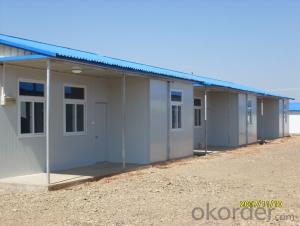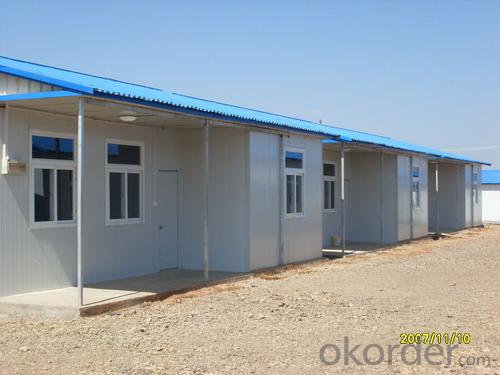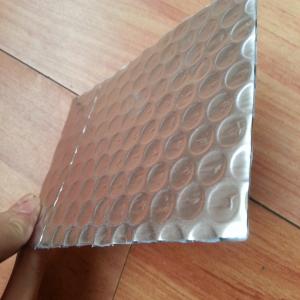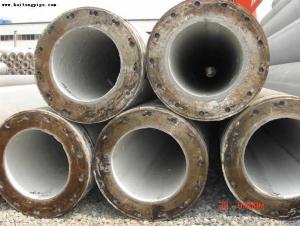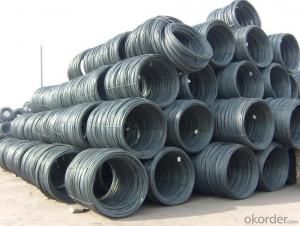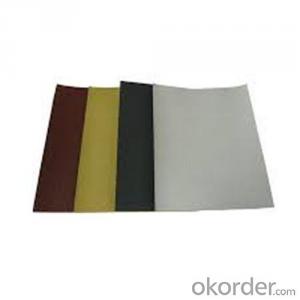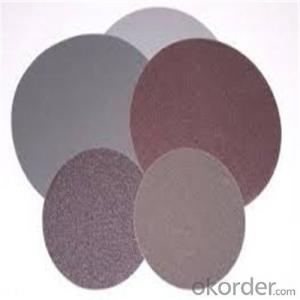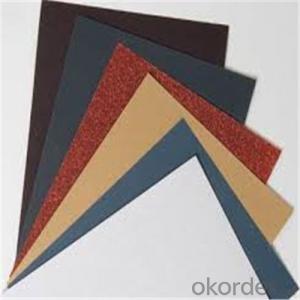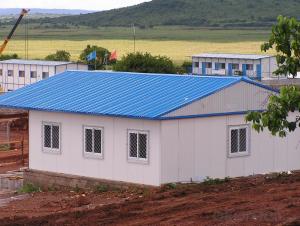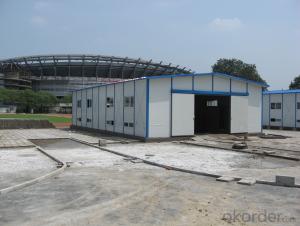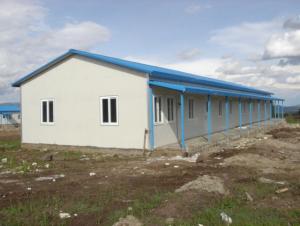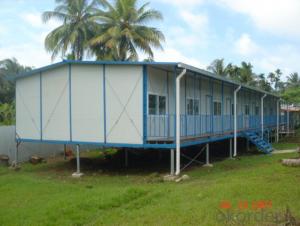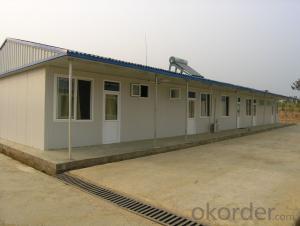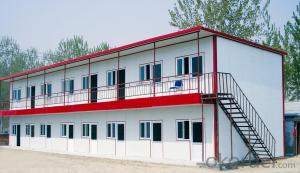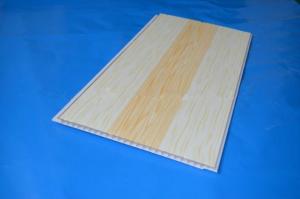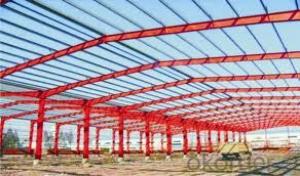Prefabricated House Sandwich Panel Steel Structure Labor House
- Loading Port:
- Tianjin
- Payment Terms:
- TT OR LC
- Min Order Qty:
- 100 m²
- Supply Capability:
- 30000 m²/month
OKorder Service Pledge
OKorder Financial Service
You Might Also Like
INtroduction
It is a kind of light steel construction prefab house with the EPS color steel sandwich panel,rock wool PU for the insulation.It can maximize as customer require and satisfaction for the cost and quality.All the house parts are packed as a flat package befor loading container.We can provide the service of installation,supervision and training by extra.As more detaills please check as follows.
House size
1.Length is free as your requirement.
2.Width:single span beam less than 12m
3:Height:single floor less than 4m,the second and third floor less than 3.5m
4.Roof pitch:slope is 1:10~1:3
5.Floors:3 floors max
House body
1.Door:outside door as SIP door,aluminium alloy door ,security door.Inside door as SIP door ,aluminium alloy door and compound wooden door.
2.Window:PVC material or aluminium alloy window screen.
3.Ground chanel:U type,galvanized ,thickness is 0.8mm
4.Square column:painted with color steel compression decorative parts
5.Compression decorative parts:made of 0.4 thickness color steel sheet.
6.Wall board:EPS color steel sandwich panel,rock wool, PU for the insulation.
7.Roof board:EPS color steel sandwich panel,rock wool ,PU for the insulation.
8.Purline:C type with painted
9.Roof beam:with paint
10.Wall beam:C type with paint
11.Ceiling:PVC ceiling,aluminium panel ceiling for bathroom and kitchen,rock wool for other area.
- Q: I am currently a sophomore in high school. I am planning on becoming a real estate agent when I graduate. I live in Texas, but really want to move to New York. Do I have to be a residence of New York in order to sell houses there? What classes should I take in high school to be prepared for the real world of selling houses?
- Real estate is one of the best investment that any one can make. You have to take proper education in order to become a good real estate agent. This education teach innovative advanced techniques to survive in this very competitive industry. You will find two options for your real estate education. You can take courses online or take classes from traditional school. I think internet can be a great choice when it comes to real estate education. All the Best.
- Q: I have an A.S in Real Estate, Bachelors in Architecture, and plan on getting my masters in real estate development. Will being an architect, a real estate broker, and a building contractor at the same time give me an advantage to be a successful real estate developer??? What do you think?
- Beyond all the data knowledge that you need to be a real estate developer- is money. You need to be very good at raising money- and planning how to work around issues that come up. For instance the time from the very start of a project (planning it and finding the property) to the end (selling the buildings) can zoom from 5 to 10 years very easily. We don't know what the economy will be like in one year- much less ten years. We also don't know much about the building and zoning requirements will be in the future years. You will need to be constantly going back to your investors and telling them why you need more money- and why it will be a while before you can return anything to them. The Excavation of the site for the Empire State Building began on January 22, 1930 (I don't know when they got the permits or started raising money). They had no idea how long the great depression would last. It is said that it did not make a profit for the investors until 1950. So how good are you at talking people into investing huge sums of money?
- Q: I have been thinking for awhile now that I would like to get into Real Estate. I am almost 25 and I have 2 kids. My husband has started his career and I would also like to start mine. The only problem is is that I will only beable to take the evening classes or weekend classes, and with that it will only take longer to get it over with. My husband asked me if this is something I can do and well I think and wanna believe I can but then I dont really know. I learn at a slower pace unless its something I understand right away and it clicks, and then taking the evening or weekend classes. I guess my question is is it worth taking night classes or weekend ones and is all the info hard to understand and im in texas is the state exam hard? My husband is a Finanical Specialist so he said that he could help me as much as he could. This would just be the first time I have tried to get into a career and I dont wanna let myself down along with my family. Advice Please!!
- You okorder for more practice. The test is probably multiple choice, so it is a matter of learning the testing style. I hate to sound like a downer. Probably 80% of new real estate licensees drop out in thier first year (similar to the success rate of new restaurants). The ones that have the knack for real estate can do very, very well. If you know a local real estate agent, I suggest you have a serious talk with him or her. You may have the personality and drive to do extremely well in real estate. You may also find it costly and frustrating. Either way, I wish you the best of luck!!!
- Q: HelloI have been reading about some real estate courses where they say that probate real estaet investing work sbecause the heirs are motivated to sell to pay of any property debts and will sell quickly for huge discount.My question is why don't they just list it with an agent?If it's such a discount someone will buy it?Thanksaston
- While an executor or personal representative for an estate may need to sell an estate's assets, such as real estate to pay off the estate's debt, most already know an agent or 2. To target these as potential home sellers is pretty much the equivilent of ambulance chasing. And as BrokerPro said, if it's so profitable these homes are offered at such a discount, why isn't the guy snatching up these homes instead of selling you his course and giving away his secrets. Plus most people that are appointed as an executor are not stupid actually, part of the probate estate process requires that all the estates assets be valued. For real estate, this needs to be in writing, such as a CMA from a real estate agent. The entire estate must be valued assets may have to be sold, or may not have to be sold. My mother died with 1.5+ mill in real estate. We sold one commercial building then a recreational lot, but are holding the other 3 properties as they are owned free clear. Doesn't cost us but taxes, insurance and utilities. No mortgages.
- Q: Also, is there a guide that list the different career option in real estate?
- A real estate broker is usually the person in charge of the real estate office with additional education and experience in handling the business and managing the personnel. A salesperson is the real estate agent who sells and lists real estate for sale and rent. He is a subordinate to the broker, but can also be a broker in some cases. The agent is the salesperson or broker. The loan officer is employed by a lending institution or mortgage broker and handles the application for a mortgage. The loan officer is forbidden by law to either list or sell the real estate involved in the mortgage loan procedure. Any major real estate company such as Century 21, Coldwell Banker, Long Foster, Weichert and others will have a complete list of all career opportunities in the real estate business.
- Q: what does it mean when delinquent real estate taxes go to the state?
- It doesn't mean anything. Delinquent real estate taxes don't go to the state. It's a nonsensical statement.
- Q: When searching foreclosures on Yahoo real estate, what are the in's and out's of the Real Estate Owned listings? Is the sale price really the sale price or is it too good to be true?
- A reliable is a individual that has the entire gear to be had to him and makes use of them. He is an trained in truly property, now not being a notary, now not being an coverage agent, now not being a mortgage officer. You can't be an trained in all the ones profession fields, preserve present on license necessities and nonetheless be present on truly property concerns, in view that you're in institution, or seminars seeking to get carrying on with schooling in the entire jobs you will have determined to be an trained in. You have a field decided on that you just be certain that you're real an trained in, recognize the entire colleges, business locations, looking department shops, strip department shops, essential folks that are living for your field that you just paintings. You see you can't paintings in all places Los Angeles and be an trained. You can nevertheless be an trained in a 5000 to ten thousand housing field. You have got to become a member of the nearby organizations which can be required so that you can become a member of. There are others that you just would wish to become a member of however don't seem to be required to become a member of. See which organizations you slot in with and those that first-class have compatibility then you definately become a member of the ones organizations. You do not even must become a member of those organizations till you will have the time and money. I wish this has been of a few use to you, well good fortune. FIGHT ON
- Q: I would like to open a real estate company. So I want a best name for my companyWhich name will best for the real estate company?
- Name your company on the name of your loved ones.
- Q: I want to apply for a Business Loan so that I can buy investment property to rent out. I have an excellent credit, a condo that is currently being rented out but I do not exactly what kind of real estate should I do Business? I want to start by myself with no one else's help, any suggestion on what should be my small business about?
- RE is a nice funding so long as thoroughly investigated, and the growth in foreclosure has opened truly property making an investment up once more to new avid gamers I could advise that you don't purchase the estate to your title and allow the manufacturer Carry the paper, it's going to deliver you larger safety in your private resources, even though as a rule a sole owner does no longer have a lot safety besides... seem at a feasible re-group of the trade. Talk in your tax accountant and legal professional for the excellent recommendation. Lenders can do what ever they wish, nevertheless they'll most likely push to have you ever signal on as a private warranty, where case you're no longer protective your private resources both method.
- Q: What are your thoughts on a a global real estate fund in the current market conditions? Obviously the US RE market has tanked and we are starting to see the global market slip. I recently invested into a 5 star global real estate fund, but am concerned that the global re market will follow suit to the us markets. Should I withdraw my funds or stick it out?Also, this is a short term investment account that we are aggressivley investing our funds. We are looking to purchase a home in abour 2 years and are trying to build some return.
- I don't think the international real estate is going to suffer too badly. I know of someone who owns a house in China and the real estate is still climbing.
Send your message to us
Prefabricated House Sandwich Panel Steel Structure Labor House
- Loading Port:
- Tianjin
- Payment Terms:
- TT OR LC
- Min Order Qty:
- 100 m²
- Supply Capability:
- 30000 m²/month
OKorder Service Pledge
OKorder Financial Service
Similar products
Hot products
Hot Searches
Related keywords
